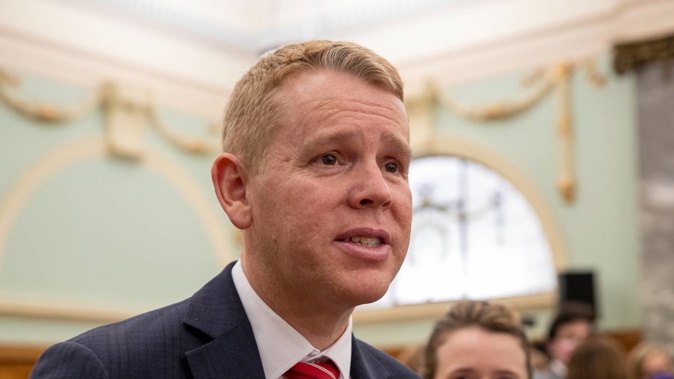
Police Minister Chris Hipkins is asking questions of Police after revelations they falsely reported car stolen when hunting for the three women who sparked the Northland Covid-19 lockdown last October.
At the time, the Police were frantic to get hold of the women because one of them had tested positive, after they had approval to leave lockdown in Auckland to work in Northland.
By registering the number plate of their cars as stolen, the police got access to the Automatic Plate Recognition systems which are run by two private sector companies with a large network of CCTV cameras in places such as service stations.
But Hipkins said after his regular meeting with Police Commissioner Andrew Coster this morning that the Police could have gained access to the system through their emergency powers.
"The advice that I've had as of this morning is that the information they were seeking they could have obtained through the platform…but they may not have used the appropriate avenue to do that.
"They are having a look now to find out exactly what happened to make sure that everybody who uses the platform knows exactly what the rules and the procedures around the use of it are."
He said he would wait to find out exactly what happened before passing judgment on how serious it was.
/cloudfront-ap-southeast-2.images.arcpublishing.com/nzme/NWWREFAN4ED6U4DACPOHUSESVE.jpg)
Police Commissioner Andrew Coster. Photo / George Heard
He said there had been a legitimate way for the Police to find out where the women were and where they had been "bearing in mind there was a huge amount of pressure at the time to find them".
- Police faked car crimes in hunt for women who sparked Covid lockdown
- Kerre Woodham: An apology to the women caught up in the Northland lockdown blunder
- Woman in centre of Northland lockdown debacle 'very discouraged' by lack of apology
Documents released to the Herald through the Official Information Act show that the Police had gained access to the Auror and Safer Cities' VGRID systems which offer automatic number plate recognition.
The Auror system allowed the Police to track the women to a BP station in Whangarei and to access footage of them there.
The difficulty in tracing them forced Northland into lockdown and once they were tracked down, back in Auckland, they were not very co-operative in telling the Police who they had met.
It is not known the nature of the work the three women had – although according to the OIA papers, it was not sex work. The Ministry of Social Development gave them approval to leave Auckland for Northland for work, but later acknowledged it had been a mistake to do so.
A spokeswoman for Auror told the Herald it would be seeking assurance from the Police to make sure correct platform procedures were followed at all times.
She had also offered to further training for police officers to use the system.
She said it was unclear why they had not used their emergency powers under the Search and Surveillance Act.
She said the company took privacy seriously.
Take your Radio, Podcasts and Music with you








